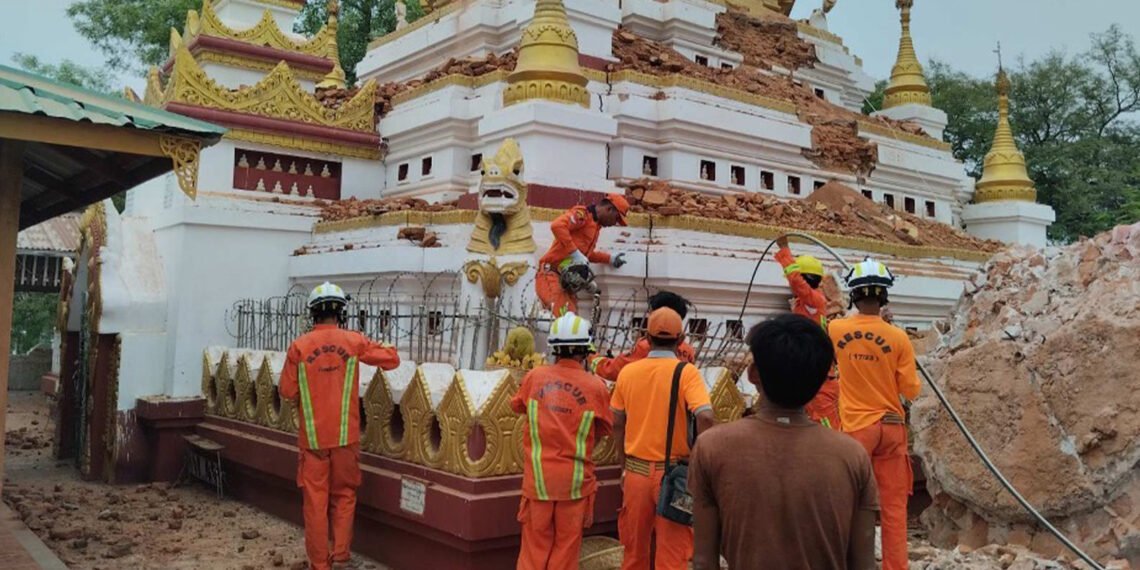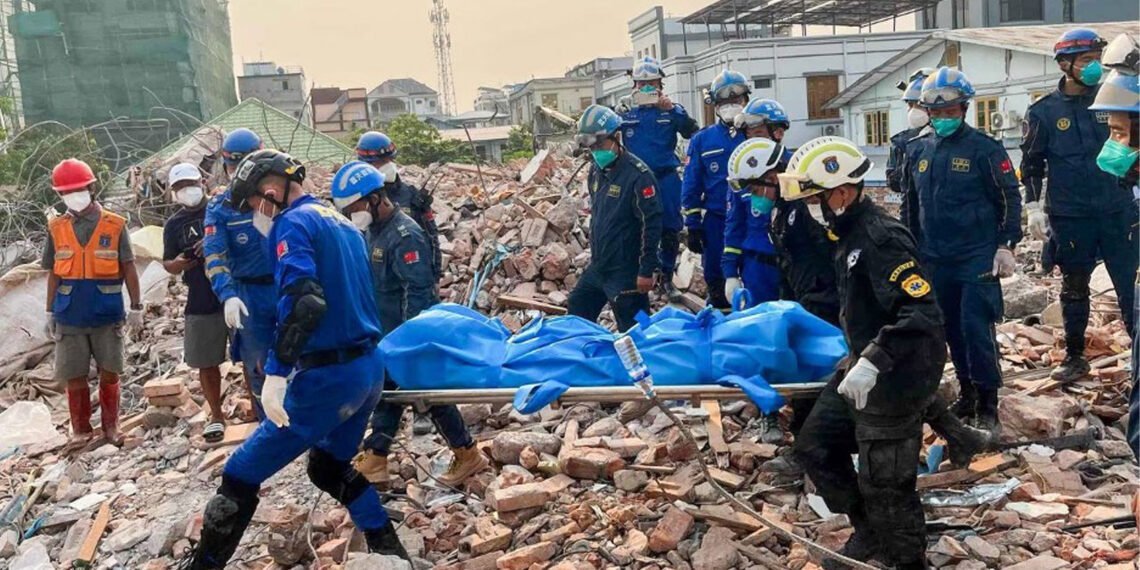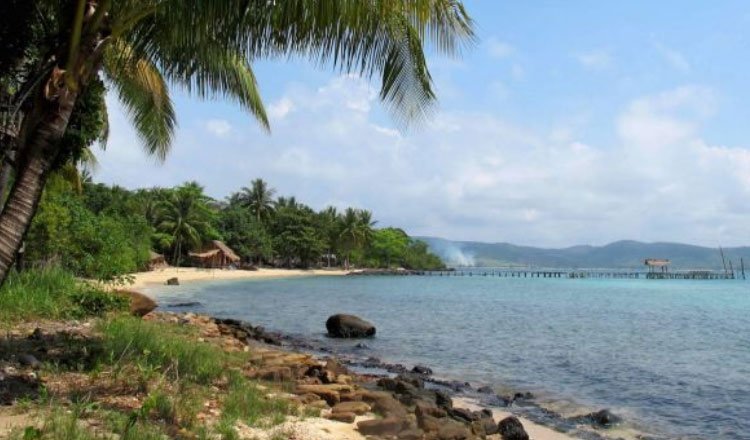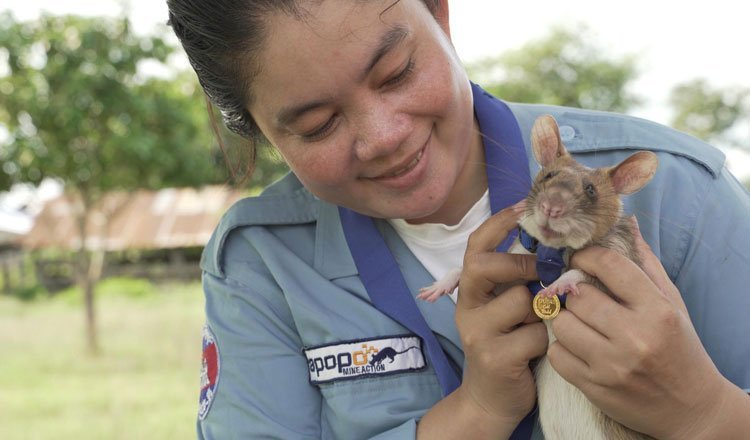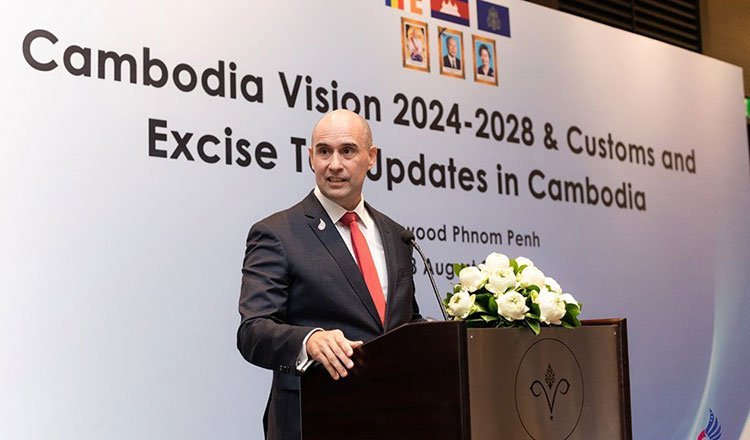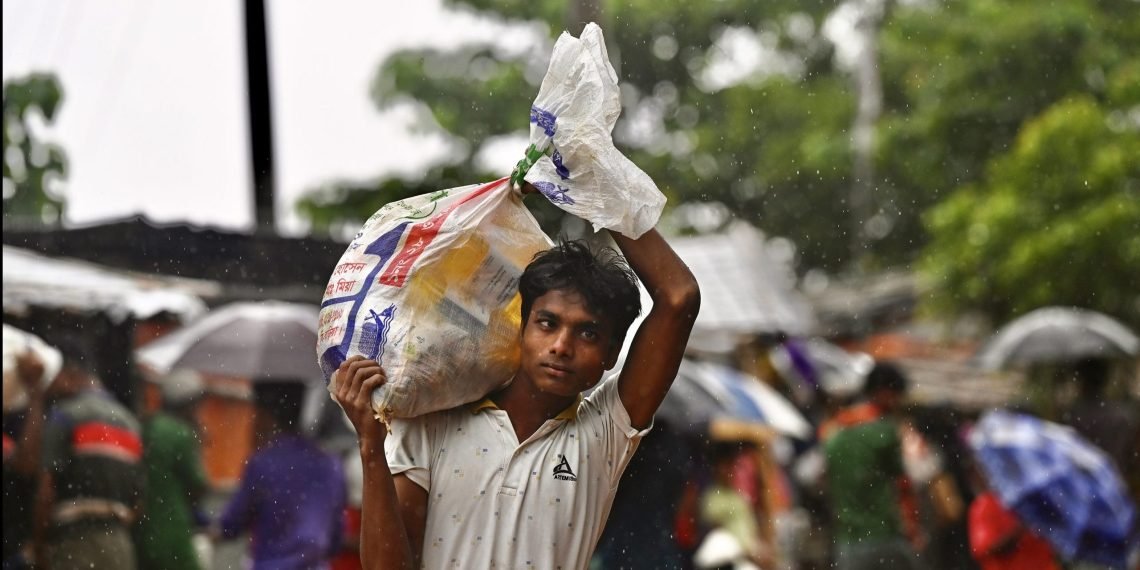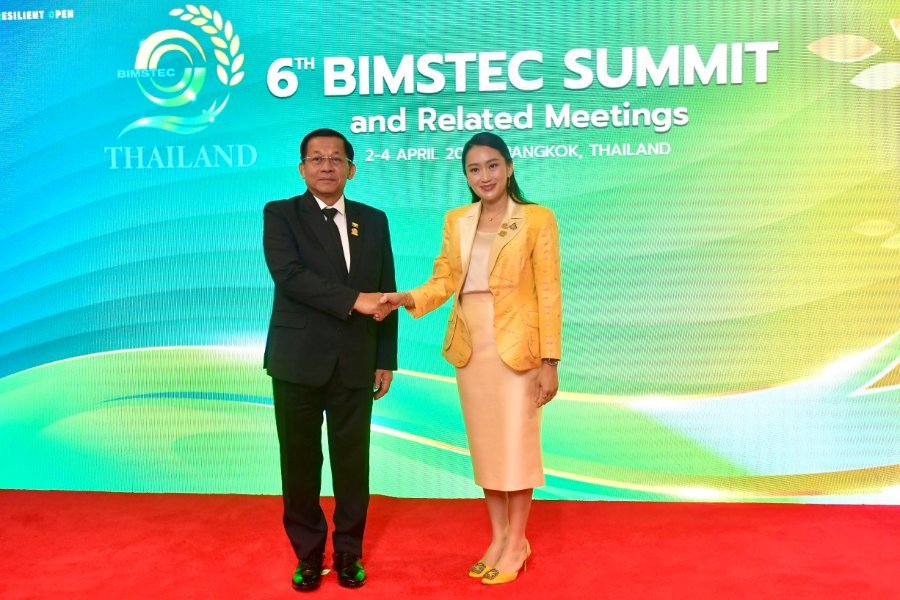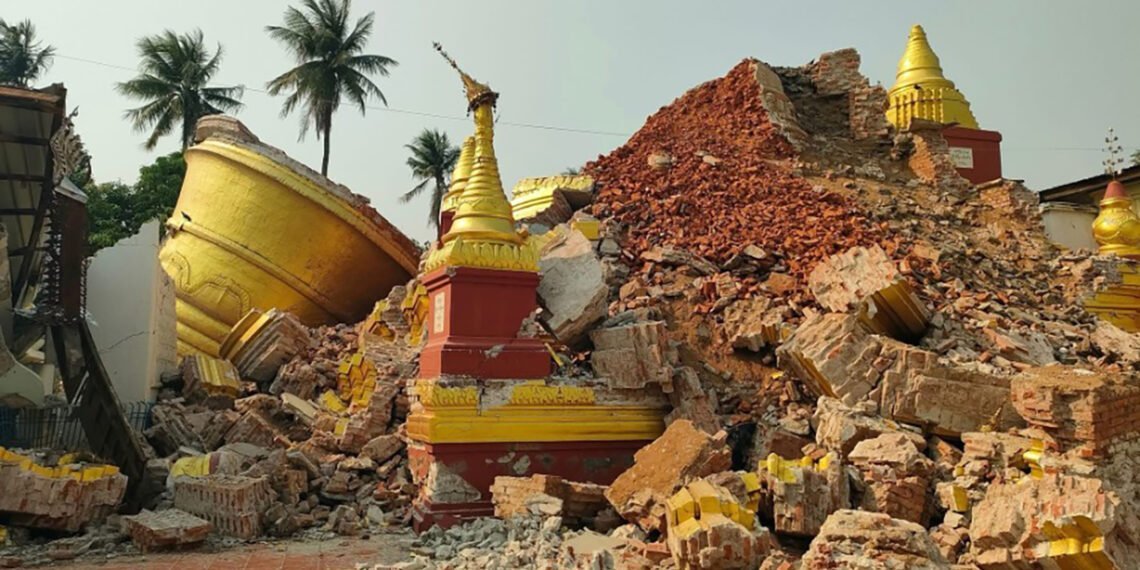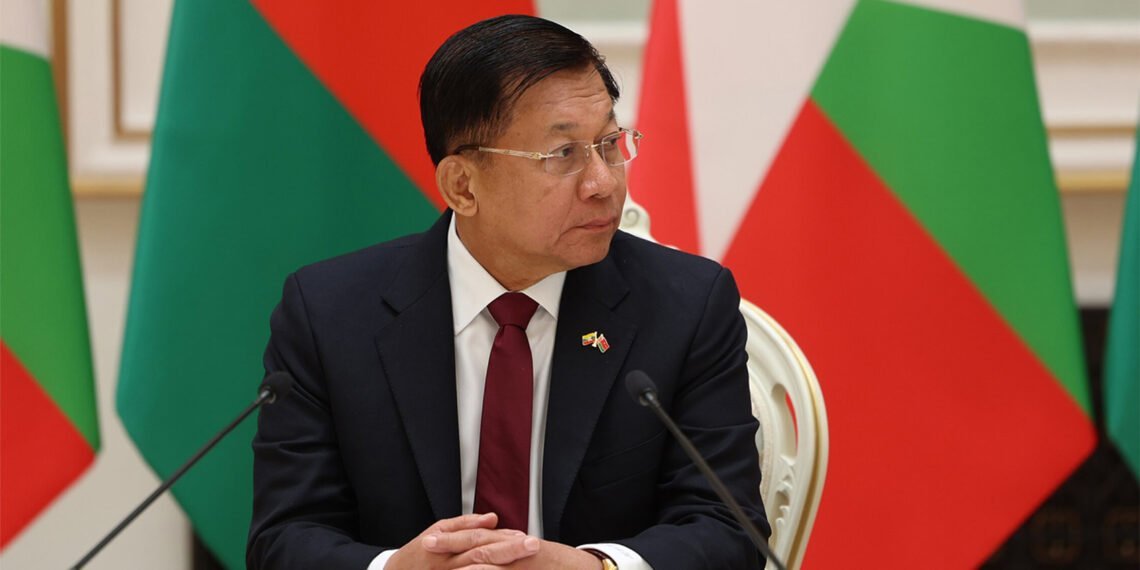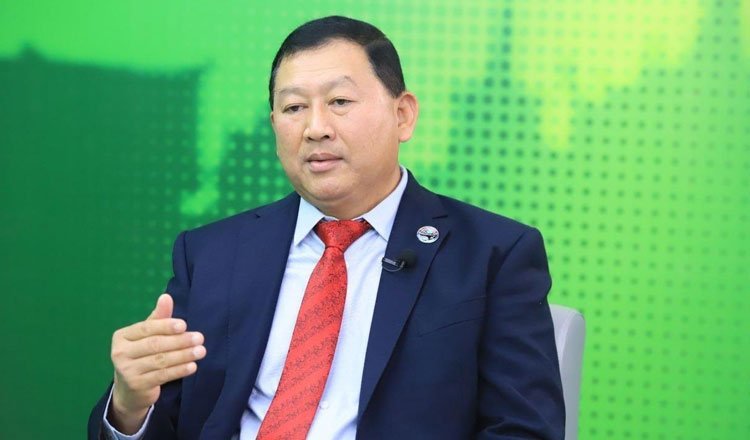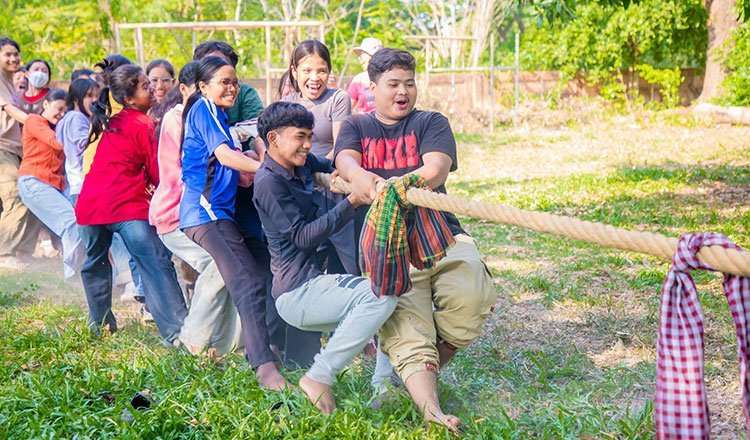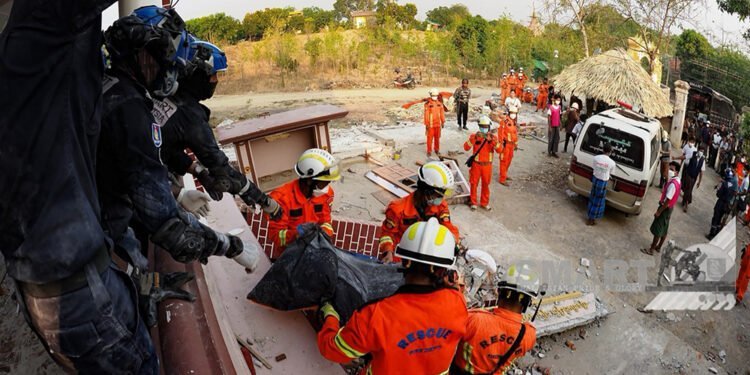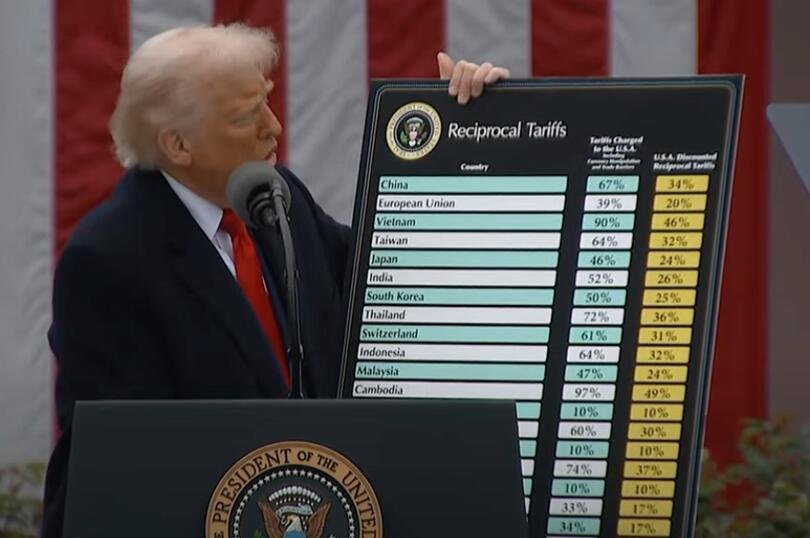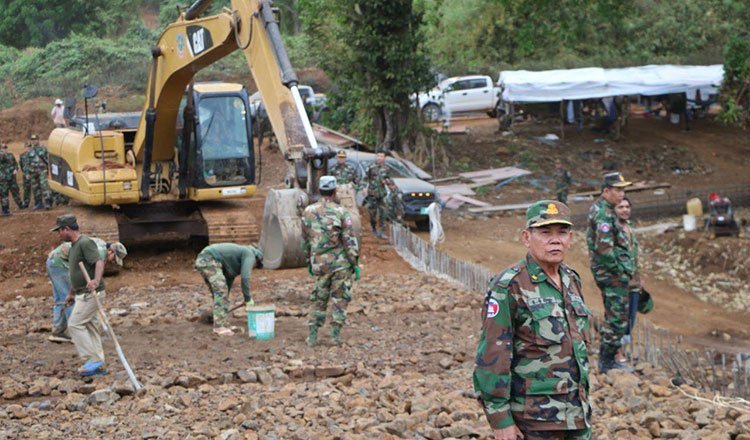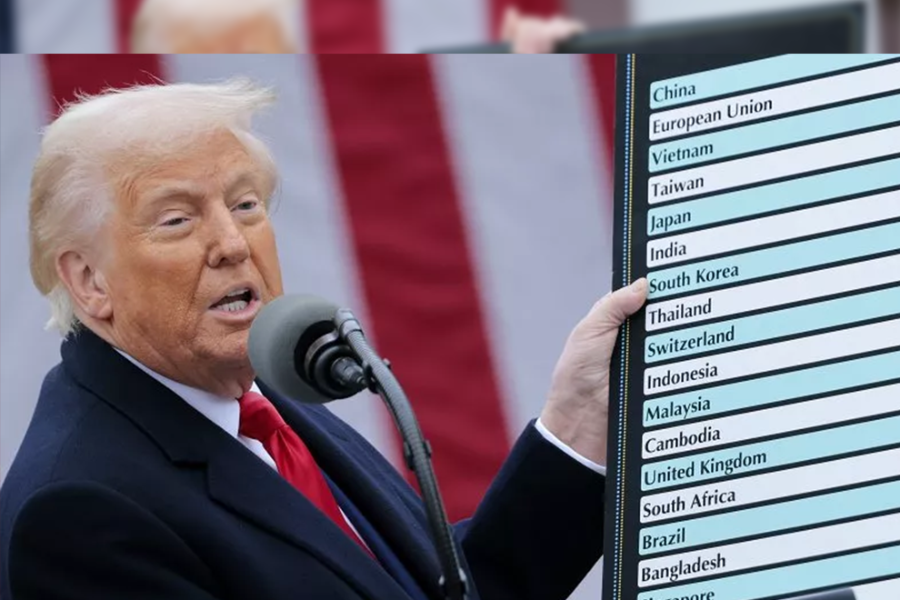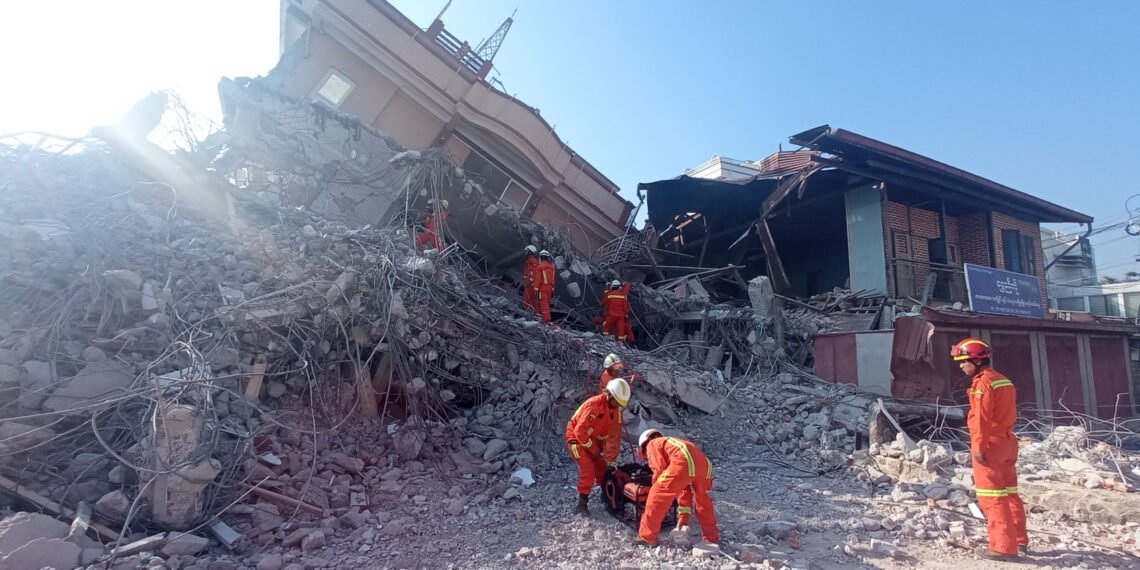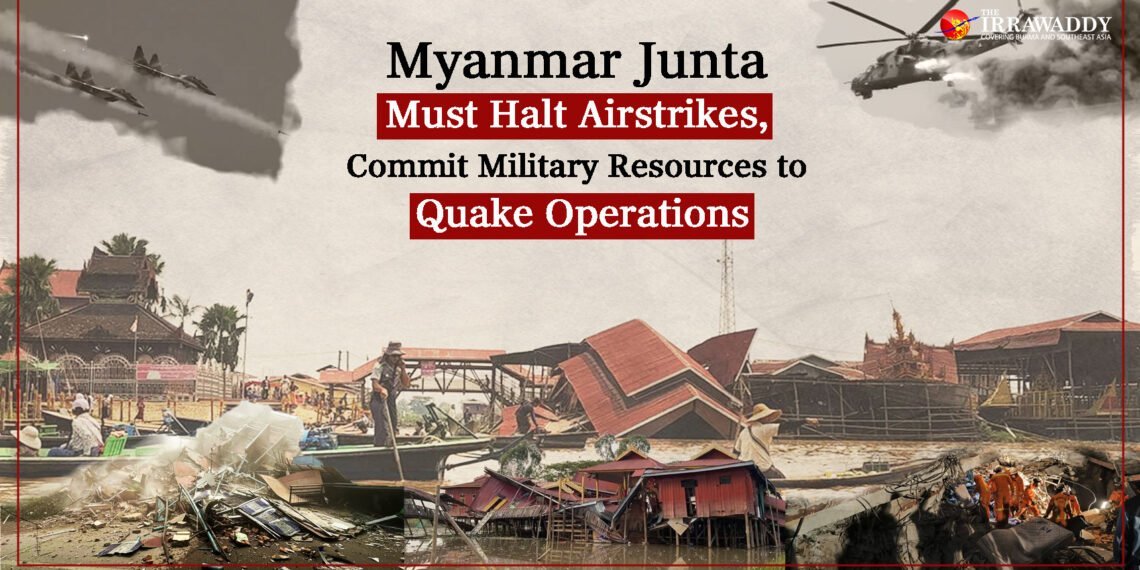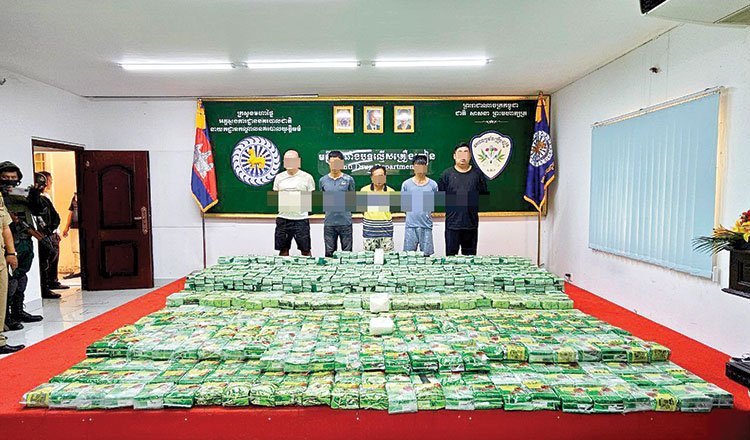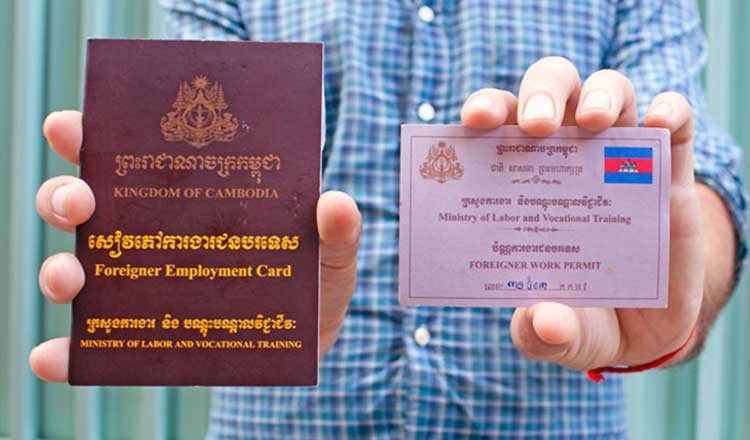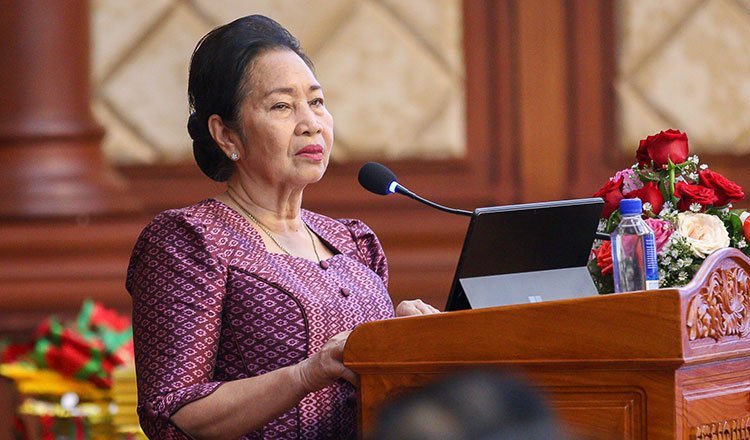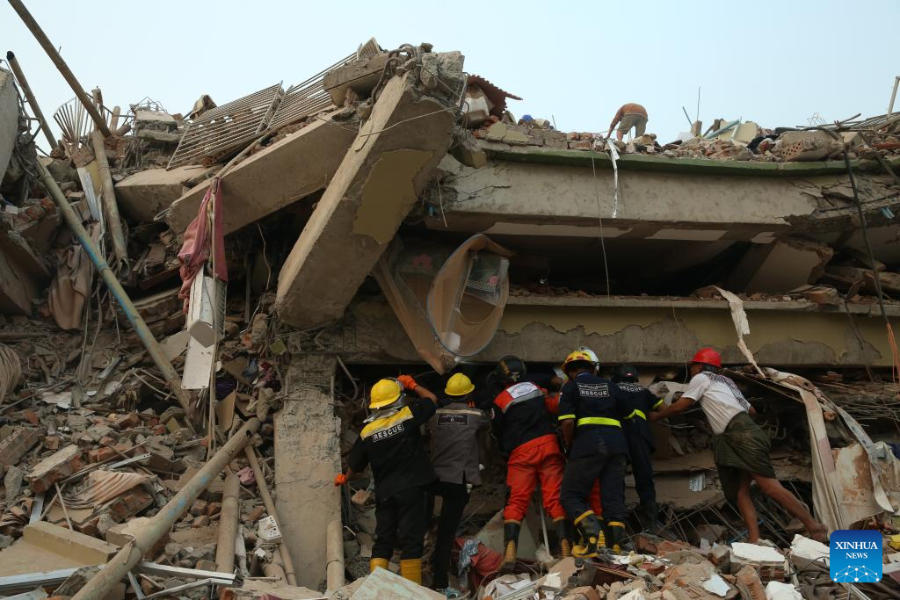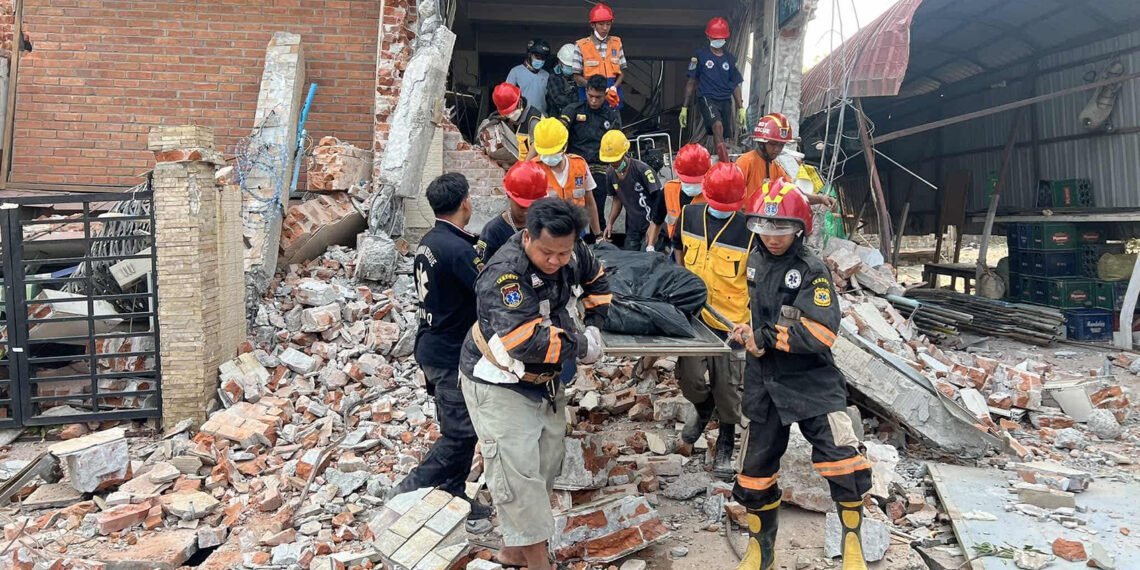-
Posts
15,576 -
Joined
-
Last visited
Content Type
Events
Forums
Downloads
Quizzes
Gallery
Blogs
Everything posted by geovalin
-

Deadly Quake Rocks Myanmar but Peace Remains a Distant Dream
geovalin posted a topic in Myanmar News
MFSD A catastrophic earthquake has plunged Myanmar deeper into crisis, compounding the nation’s civil war and dimming hopes for peace, despite a brief ceasefire announced by the ruling military junta. Two weeks after the 7.7 magnitude quake — one of the strongest in a century — rocked Myanmar, the official death toll has risen to 3,471, with thousands still missing. Experts warn that fatalities may exceed 10,000, with economic losses likely to surpass the country's entire annual GDP of $66.8 billion. In a rare move, the military government quickly declared a state of emergency and appealed for international aid. The shift drew comparisons to 2008’s Cyclone Nargis, when a sluggish response by the junta worsened the death toll. But analysts warn that despite the more cooperative tone, the quake is unlikely to prompt any genuine political breakthrough. “The battle lines are etched too deeply,” said analyst Angshuman Choudhury. “There’s little to no common ground between the junta and opposition groups.” The junta has declared a 20-day ceasefire until 22 April, citing the need to support humanitarian efforts. But ongoing airstrikes in quake-hit regions and blocked aid routes tell a different story. Reports from the UN and Amnesty International accuse the military of hampering relief in rebel-held areas, with incidents including warning shots fired at a Chinese Red Cross convoy. Myanmar’s descent into turmoil began in 2021, when the military overthrew the elected government. Since then, 3.5 million people have been displaced, and the country has become one of the most violent places in the world, according to ACLED. The quake hit as the junta faced mounting battlefield losses, prompting observers to suggest the regime is now using the disaster to regroup militarily — and diplomatically. Junta chief Min Aung Hlaing recently visited Bangkok, meeting leaders from Thailand and India to discuss relief, signalling a push to bolster legitimacy ahead of a controversial election in December. But critics see the vote as little more than theatre. “It’s a calculated move to portray a path to civilian rule,” Choudhury said, “when in reality, the military intends to stay firmly in control.” With suffering on the rise and no end to the conflict in sight, Myanmar’s future remains precarious — shaken by both nature and man. -2025-04-08-
- 1
-

-
The Irrawaddy The 7.7-magnitude earthquake that struck central Myanmar on March 28 has left no corner of the country untouched—including the military elite’s stronghold in Naypyitaw. While junta chief Min Aung Hlaing took cover under a desk during the quake, elsewhere, entire neighborhoods in Mandalay and Sagaing collapsed into chaos, with the death toll nationwide climbing to 3,145 by Thursday. In Naypyitaw, the administrative capital tightly controlled by the military, destruction was severe. Government buildings, roads, bridges, hospitals, and staff housing were badly damaged. According to the junta’s own figures, the city suffered the second-highest death toll after Mandalay, with at least 511 people killed. The junta was initially tight-lipped about the extent of the damage in the capital. But as images circulated of collapsed ceilings and ruined government offices, officials were forced to acknowledge the reality. Even Foreign Minister Than Swe had to attend a crucial ASEAN emergency meeting from a tent outside his damaged office. The National Disaster Management Committee, Myanmar’s top disaster response body, also lost its headquarters and has been operating out of a temporary shelter. The earthquake spared no one—not even the most powerful. Reports suggest that the Row of Six Mansions, home to ex-leaders like Than Shwe and Thein Sein, sustained structural damage. Chandeliers in the presidential palace were seen shattered, and elite war offices were hit hard. Min Aung Hlaing’s own advisor, Yin Yin Nwe, described taking shelter under a table as buildings shook violently. Despite the destruction, government response has been minimal. Rescue operations in hard-hit housing complexes like Khayay and Zabuthiri were largely absent, leaving families of civil servants trapped under debris. One government worker stated that junta officials came to inspect the damage but “did nothing to help.” Even Myanmar’s ruling elite, it seems, could not insulate themselves from the wrath of nature—nor from the failures of their own crisis response system. -2025-04-07
- 1 reply
-
- 1
-

-
photo Myanmar rescue team Three U.S. aid workers have been abruptly fired by the Trump administration while on assignment in Myanmar, where they were helping coordinate relief efforts following a catastrophic earthquake that has killed over 3,000 people. The 7.7-magnitude quake struck near Mandalay on 28 March, becoming the country’s second deadliest on record. It left more than 4,800 injured and hundreds still missing. Myanmar’s government quickly requested international assistance, prompting several nations—Russia, China, India, Malaysia, Thailand and Vietnam among them—to send immediate aid. The United States, by contrast, sent only a small team of USAID staffers, who arrived days before being dismissed by email. The sudden firings have shocked humanitarian circles, coming at a time when Myanmar's need for foreign support is critical. According to colleagues who spoke anonymously to The New York Times, the decision left staff “furious” and diplomats deeply unsettled, fearing the move could signal further politicisation of foreign aid. The firings also appear to contradict earlier assurances by Secretary of State Marco Rubio, who had pledged continued U.S. support for crisis response, despite President Trump’s broader push to dismantle USAID’s independence. Under ongoing restructuring plans, USAID is to be absorbed into the State Department, with deep job cuts and reduced aid capacity expected. Though USAID staff had been warned about potential job losses later this year, the abrupt termination of field workers during a humanitarian mission was described by insiders as “especially cruel”. In the meantime, a joint statement from the U.S., Australia, Japan and India promised $20 million in assistance to Myanmar—though only $2 million will come from Washington. The relatively modest sum has drawn sharp criticism from Democrats, with several senators urging Rubio and USAID Director Bessent to “rapidly assess” what more can be done. The future of U.S. involvement in Myanmar’s recovery remains unclear, but the firings have cast a long shadow over Washington’s role—and reputation—in global disaster relief. -2025-04-07
-
Cambodia will reclaim several abandoned island development projects and repurpose them for national defence, Prime Minister Hun Manet announced on 5 April, marking a significant shift in land use strategy in the country’s coastal regions. The statement came during the inauguration of the Cambodia–China Joint Logistics and Training Centre, where Hun Manet confirmed that some islands previously handed to private developers had remained inactive and would now be reassessed for strategic use. “Now is the time for the Council for the Development of Cambodia (CDC) to start re-evaluating some of the islands that were licensed and left behind,” he said, signalling a more assertive approach to managing state land. “Let’s think about where it was taken away and leave it for the navy for our long-term defence base.” The Prime Minister outlined a broader vision for balancing national security with economic needs, noting that while defence must be prioritised, the country must also reserve space for private investment and residential development. “This kind of thinking should be differentiated,” he said. “We cannot only think about the army without considering the growth of the economic and commercial needs of the people.” Hun Manet directed the CDC to work closely with the Ministry of National Defence to identify and designate islands suitable for military purposes. These areas will be formally classified as public land under national defence control and subject to strict regulation. The move reflects Cambodia’s evolving approach to land management, particularly in sensitive coastal areas where overlapping interests of defence, development, and conservation often collide. It also comes amid growing geopolitical tensions in the region, with Cambodia seeking to bolster its naval infrastructure, particularly around the strategically located Ream base. Observers say the government's more proactive stance could tighten oversight of development projects, many of which have faced criticism for stagnation or lack of transparency in recent years. The new policy appears designed to both secure national interests and present a more deliberate framework for future private investment—one that balances security with sustainable growth. -2025-04-07
-
KT Cambodia’s Prime Minister Hun Manet has officially inaugurated a newly renovated naval base at Ream, backed by Chinese funding and engineering—drawing praise from Beijing and fresh scrutiny from the West. Speaking at the high-profile ceremony on 5 April, Hun Manet insisted there was “nothing to hide” about the base’s purpose, amid long-standing concerns from the United States over its potential use by China’s navy. “From today, Cambodia will welcome all friends to hold joint exercises in the Ream base,” he said, rejecting claims of exclusivity and promising access for foreign navies. The base, situated on Cambodia’s southern coast near the contested South China Sea, has strategic implications. Since 2019, Washington has voiced concerns that China could be gaining a foothold in the Gulf of Thailand, citing reports of a secret agreement between Phnom Penh and Beijing. In 2022, US outlets reported the upgrades were designed for Chinese military use—allegations Cambodian officials continue to deny. At Saturday’s ceremony, attended by military representatives from multiple countries, Cambodia rolled out the red carpet for delegates from China’s People’s Liberation Army. Senior Chinese officer Cao Qingfeng described the port as a symbol of “iron-clad friendship” and pledged it would “inject new momentum into regional security”. He confirmed the site would host joint exercises, including the annual Golden Dragon drills next month. The base’s refurbishment, undertaken since 2022 with Chinese assistance, includes a 363-metre pier where Chinese warships first docked late last year. Two more Chinese vessels are set to be delivered to Cambodia, further deepening defence ties. Hun Manet also announced that Chinese President Xi Jinping will visit Cambodia this month, a move that underscores Beijing’s growing influence in the region. Under former prime minister Hun Sen—Manet’s father—China funnelled billions into Cambodian infrastructure, as ties with Washington cooled. Nonetheless, Cambodia has made efforts to show balance. A US warship docked in nearby Sihanoukville in December, the first in eight years, followed by a visit from a senior US commander in February. Last month, Cambodia revealed a Japanese warship would be the first foreign vessel to dock at Ream since its reopening. Whether such gestures will ease strategic anxieties remains to be seen. But Phnom Penh is clearly positioning Ream not just as a naval base, but as a litmus test for its diplomatic balancing act between East and West. -2025-04-07
-
apopo, archives A giant African pouched rat named Ronin has made history in Cambodia by detecting more landmines than any other rat on record. Deployed by Belgian charity APOPO in August 2021, Ronin has sniffed out 109 landmines and 15 unexploded ordnances (UXOs) in Cambodia’s northern Preah Vihear province, earning him a Guinness World Record and a place in humanitarian demining history. At just five years old, Ronin now holds the title of most successful Mine Detection Rat (MDR) in APOPO’s history, surpassing the late Magawa, another celebrated rat who detected 71 landmines and 38 UXOs before retiring in 2021. Magawa was previously awarded a gold medal for heroism before his death in 2022. APOPO praised Ronin for his “exceptional accomplishments,” saying his work highlights the crucial role of HeroRats in saving lives and reclaiming land in post-conflict zones. "He’s not just an asset, he’s a valued partner and colleague,” said Phanny, Ronin’s handler. Cambodia remains one of the most heavily mined countries in the world, a legacy of decades of conflict, including the Vietnam War and the rise of the Khmer Rouge. The US bombing campaign during the 1960s and 1970s, followed by internal conflict that lasted until 1998, left the country littered with hidden dangers. Since 1979, over 20,000 people have died from landmines and UXOs, with twice as many injured. Despite international support and local efforts, tragedies still occur. As recently as February, two toddlers were killed in Siem Reap province when a buried rocket-propelled grenade exploded near their home. Originally targeting 2025 as a mine-free milestone, the Cambodian government has now extended the deadline to 2030, citing financial constraints and the discovery of new contaminated areas, especially along the Thai border. Ronin, however, continues to play a key role in these efforts and may have at least two more years of active service ahead of him. His record-breaking success offers not just a glimmer of hope in a long battle, but a reminder that even the smallest allies can make a life-saving difference. -2025-04-05
-
AmCham Cambodia has been hit with a steep 49% US tariff on its exports, prompting concern in Phnom Penh and a scramble to shield the economy from what many are calling a serious threat to competitiveness. The tariff, announced by former US President Donald Trump in a sweeping crackdown on trade imbalances, makes Cambodia the hardest-hit country in ASEAN. Trump, speaking at a press conference, singled out Cambodia for having “made a fortune” from US trade and pledged to rein in what he called unfair gains. The Cambodian government is now weighing “comprehensive measures” to keep its economy competitive, said Meas Soksensan, spokesperson for the Ministry of Economy and Finance. “We will implement specific steps to support growth and protect jobs,” he told Khmer Times. The American Chamber of Commerce in Cambodia (AmCham) warned that the tariff could have an immediate and damaging effect on the country’s key export industries, particularly garments and footwear. AmCham president Casey Barnett urged swift talks with Washington, saying “the only way to avoid serious long-term harm is through immediate diplomatic engagement.” Exports to the US are vital to Cambodia’s economy, making up nearly $10 billion in 2024 alone—an 11% rise from the year before. Yet the country's efforts to diversify exports over three decades have had limited success, leaving it exposed to trade shocks. Still, some are urging caution. Lim Heng of the Cambodia Chamber of Commerce said assessments should wait until the tariff is actually in force, noting that previous fears—such as the partial withdrawal of EU trade preferences—did not lead to the worst-case scenarios. Others warn the tariff may do more harm to the US in the long run. Chheng Kimlong of the Asian Vision Institute called it “a short-term win” for Washington that could damage its reputation as a leader in free trade and invite retaliation from other nations. With the tariff set to take effect on 9 April, Cambodia has a narrow window to negotiate. Analysts say the government may offer reciprocal trade concessions, or even grant American businesses greater access, in hopes of defusing the crisis. As tensions rise, some see the move as part of a wider geopolitical struggle. “When elephants fight, it is the grass that suffers,” said Youk Chhang of DC-Cam, pointing to Cambodia’s growing role in China-US trade rivalry. -2025-04-05
-
The Irrawaddy In a development that could signal movement on a long-stalled crisis, Myanmar has confirmed that 180,000 Rohingya refugees living in Bangladesh are eligible to return home, according to the Bangladeshi government. The announcement was made following high-level talks between Bangladeshi envoy Khalilur Rahman and Myanmar’s deputy prime minister Than Swe on the sidelines of the BIMSTEC summit in Bangkok. The verified names come from a list of 800,000 Rohingya submitted by Bangladesh between 2018 and 2020. While the news has been framed as a diplomatic breakthrough, reaction within the refugee camps in Cox’s Bazar has been cautious, even sceptical. “This feels like nothing more than an eyewash,” said Shafiqur Rahman, a Rohingya refugee. “Myanmar must take all of us back — not just a selected few — and they must ensure we return with full rights, dignity, and citizenship.” Over one million Rohingya have taken shelter in southeastern Bangladesh since 2017, when Myanmar’s military launched a brutal crackdown that UN investigators later described as having “genocidal intent.” Some families have been in the camps even longer, having fled previous waves of persecution. Despite efforts to begin repatriation in 2018 and 2019, no large-scale return has materialised, primarily because the refugees fear ongoing discrimination and violence. Rohingya remain effectively stateless in Myanmar, denied citizenship, freedom of movement, and access to education or healthcare. Myanmar has indicated that final verification of an additional 70,000 names is still pending, and pledged to accelerate checks on the remaining 550,000 on the original list. However, without concrete assurances of safety and rights, refugee leaders say few will be willing to return. For now, the statement marks a small step in a complex process overshadowed by decades of ethnic persecution. Whether this signals the beginning of a real solution—or just more diplomatic posturing—remains to be seen. -2025-04-05
- 1 reply
-
- 1
-

-
Thai Enquirer Myanmar's embattled junta chief, Min Aung Hlaing, has resurfaced on the international stage, meeting Indian and Thai leaders in Bangkok even as the United Nations accuses his military of obstructing humanitarian aid following a devastating earthquake. The rare diplomatic outing came during the BIMSTEC summit, where the junta leader, shunned by most since his 2021 coup, held talks with Indian Prime Minister Narendra Modi and Thai Premier Paetongtarn Shinawatra. Their discussions centred on post-quake recovery efforts, with Modi urging a permanent ceasefire in Myanmar, where civil war continues to ravage much of the country. More than 3,100 people have died and thousands more remain injured or missing after the 7.7-magnitude quake struck last week. While international aid has begun flowing in, the UN says the junta is blocking supplies to areas not loyal to its rule, compounding the humanitarian catastrophe. UN Secretary-General António Guterres described the situation as “supercharged suffering” and called for the tragedy to become a turning point for peace. UN officials are investigating dozens of fresh attacks by the military, including 16 reported breaches of the junta’s own ceasefire declared earlier this week. Min Aung Hlaing, meanwhile, has used the disaster to re-engage with regional partners, pressing forward with talks on trade, infrastructure and security. India has backed calls for “inclusive and credible elections” to resolve the conflict, even as critics argue any vote under junta control would simply entrench military power. Relief efforts are also racing against time. Heavy rains and extreme heat threaten to spark disease outbreaks in makeshift camps housing displaced survivors across Mandalay, Sagaing, and Naypyitaw. The US has pledged a further $7 million in aid, but international frustration grows as vital assistance fails to reach those most in need. While the junta pushes for a December election, many remain sceptical. As pressure mounts, observers say Myanmar’s neighbours — including India, China, and Thailand — now face a delicate balancing act: offering disaster aid without legitimising a regime still widely condemned. -2025-04-05
-
Photo Zay Myo Lin The death toll from Myanmar’s catastrophic earthquake has climbed to over 3,000, as extreme weather threatens to trigger disease outbreaks among survivors still sleeping outdoors amid collapsed homes, destroyed hospitals, and ongoing civil unrest. The 7.7-magnitude quake—Myanmar’s strongest in over a century—struck last Friday, devastating parts of central Myanmar and affecting more than 28 million people. With many hospitals destroyed or damaged and thousands displaced, health experts warn that rising temperatures and incoming rains could compound the crisis. According to the ruling junta, 3,085 people are confirmed dead, with 4,715 injured and 341 still missing. In regions such as Mandalay, Sagaing, and Naypyitaw, survivors are sheltering in makeshift camps under the searing 38°C heat, fearful of returning to structurally unsound buildings. The World Health Organization has raised alarms over the heightened risk of cholera, dengue, and malaria. "Cholera remains a particular concern," said Elena Vuolo, deputy head of WHO’s Myanmar office, referencing a previous outbreak in Mandalay. Around half of the healthcare facilities in affected zones have been rendered inoperable, further hampering medical response efforts. WHO is preparing $1 million in emergency supplies, including body bags and health kits, as local hospitals erect temporary shelters to care for the injured. But worsening weather is expected to make the situation even more perilous. Myanmar’s meteorological department has warned of unseasonal rains starting Sunday and lasting through 11 April. Aid organisations fear that flooding in already devastated areas could accelerate the spread of waterborne diseases. "If that hits, we’ve got people in makeshift camps, and that’s going to be a real problem," said Titon Mitra, the UNDP’s representative in Myanmar. The ongoing civil conflict, sparked by the 2021 military coup, continues to complicate access to the worst-hit regions. Relief agencies are urging the junta to grant full humanitarian access, warning that further delays could deepen an already dire humanitarian crisis. As the international community rushes to respond, Myanmar faces a race against time—not only to rescue and treat survivors but to stave off the deadly secondary effects of disaster in a country already on its knees. -2025-04-04
-

Myanmar Junta Leader Joins Summit Amid Quake, Airstrike Fury
geovalin posted a topic in Myanmar News
Myanmar’s junta chief, Min Aung Hlaing, has travelled to Thailand for a regional summit, even as his country reels from a devastating earthquake and fresh military airstrikes that have drawn sharp international condemnation. The trip marks his second major foreign visit since seizing power in the 2021 coup. He is attending a two-day meeting of the Bay of Bengal Initiative for Multi-Sectoral Technical and Economic Cooperation (BIMSTEC), hosted in Bangkok and involving seven South Asian and Southeast Asian nations. According to junta media, Min Aung Hlaing will discuss disaster relief and potential international cooperation, following Myanmar’s most powerful quake in over a century. The death toll from the quake, which struck last Friday, has climbed past 3,000, with thousands more injured and hundreds still unaccounted for. Yet, even as rescue efforts continue, the junta has carried out more than 20 air and artillery strikes in resistance-held regions, including Sagaing, Kachin, and Rakhine, since the earthquake hit. Reports indicate at least five of those strikes occurred on Tuesday, despite ceasefire calls from various ethnic armed groups. Just hours before Min Aung Hlaing’s departure, the regime announced its own ceasefire, claiming it would last until April 22. But within hours, airstrikes resumed in Kachin State, raising doubts over the junta’s commitment to its pledge. The summit has sparked strong criticism from rights groups across the region. ASEAN Parliamentarians for Human Rights and other organisations condemned the junta’s participation, citing ongoing atrocities, war crimes, and systematic attacks on civilians. Min Aung Hlaing remains barred from ASEAN-level meetings for his failure to uphold the bloc’s peace plan. His visit also renews speculation over possible meetings with Thailand’s influential former prime minister, Thaksin Shinawatra, who has longstanding ties to Myanmar’s military leadership. Though Thaksin previously attempted informal peace talks with opposition groups, they failed to yield progress. Despite international outrage and domestic crisis, Min Aung Hlaing’s Bangkok trip suggests the junta is keen to project a sense of legitimacy abroad—even as its actions at home continue to draw condemnation. -2025-04-04 -
Penn Sovicheat, Secretary of State at the Ministry of Commerce Cambodian officials have urged calm following a sharp hike in US tariffs on Cambodian goods, insisting the move is not politically driven and pledging to protect the country’s export sector. On 3 April, US President Donald Trump announced a new 49% tariff on imports from Cambodia, citing reciprocal measures after Cambodia imposed a 97% rate on American goods. The change, set to take effect on 9 April, has raised fears over its potential impact on Cambodia’s economy, particularly in the garment and manufacturing sectors. Penn Sovicheat, Secretary of State at the Ministry of Commerce, rejected claims that the tariff hike is politically motivated. “This is not about politics,” he said. “The US has imposed similar tariffs on over 100 countries, including its close allies. This is part of a broader economic strategy, not a targeted response to Cambodia.” He explained that the Royal Government and the Ministry of Commerce are actively working to assess the impact and prepare countermeasures. “We urge citizens and exporters to remain calm. This is a negotiation, not a sanction,” he said, adding that Cambodia will engage through both bilateral channels and the World Trade Organization. The tariffs come amid strong trade growth between the two nations. In 2024, Cambodia exported nearly $10 billion in goods to the US, up over 11% from the previous year. The new levy will affect a range of products including garments, travel goods, footwear, tyres, and solar panels. Labour Minister Heng Sour also addressed concerns, stressing that the impact on workers this year will be minimal. “Most orders were placed before the tariffs were introduced. In fact, many firms risk penalties if they cancel existing contracts,” he explained. He added that Cambodia’s export diversification, especially towards Europe, has reduced overreliance on the US. “We’re not alone in this — other countries face similar tariffs, and Cambodia’s production costs remain competitive.” Officials reaffirmed their commitment to supporting exporters and maintaining economic stability, warning against misinformation and speculation. While the full impact of the tariffs will unfold in the coming years, the government remains firm in its position: trade, not politics, is at the heart of this dispute. -2025-04-04
-
UYFC Cambodia’s Ministry of Education is calling on schools nationwide to lead the charge in preserving Khmer traditions during this year’s Khmer New Year celebrations, with a fresh set of cultural guidelines issued to schools and youth organisations. In a notice released this week, the ministry set out four key points aimed at encouraging students to take part in traditional dances and games, while clamping down on newer, riskier trends that could overshadow cultural values. Top of the list is a push for widespread participation in age-old customs, from the elegant Romvong and Rom Kbach dances to crowd favourites like Chol Chhoung and Bos Angkunh. These activities, the ministry says, are essential to safeguarding Khmer identity and passing cultural pride down to younger generations. Schools are being asked to play an active role in this. Teachers, youth groups, and student councils have been tasked with not only encouraging involvement but also ensuring that events are run safely and respectfully. However, not all festive habits are being welcomed. The ministry has warned against more modern additions to the holiday – like water fights and talcum powder throwing – which, though popular, are now seen as safety risks and culturally inappropriate in the school setting. To support the effort, local education departments, parents, and community leaders are being urged to collaborate with schools, helping to both share information and manage any issues that arise during the celebrations. The move reflects a broader push to blend celebration with cultural responsibility, aiming to keep the spirit of the Khmer New Year alive without losing sight of its roots. -2025-04-04
-
The Irrawaddy Myanmar’s military has announced a temporary ceasefire to aid relief and reconstruction efforts following last week’s devastating earthquake, which has claimed at least 2,886 lives. The ceasefire, in effect from 2 April to 22 April, marks a rare pause in the country’s ongoing civil conflict. The move comes after rebel groups fighting the junta unilaterally declared their own ceasefire earlier this week to support rescue efforts. Until Wednesday’s announcement, the military had refused to reciprocate. The 7.7-magnitude earthquake, which struck last Friday, has left hundreds still missing and has worsened Myanmar’s already dire humanitarian crisis. The tremors were felt as far away as Thailand, where 21 deaths have been reported. Despite the ceasefire declaration, tensions remain high. On Tuesday night, Myanmar’s military fired at a Chinese Red Cross convoy carrying aid supplies in eastern Shan State. The convoy was en route to Mandalay, one of the hardest-hit cities. The junta claimed its troops fired warning shots after the vehicles failed to stop at a checkpoint. No injuries were reported. China’s foreign ministry confirmed that its rescue team and supplies were safe and called on “all factions and parties in Myanmar to prioritise earthquake relief efforts.” Rebel group Ta’ang National Liberation Army (TNLA), which was escorting the convoy, insists it had notified the junta of the vehicles' movements. The military, however, said it had not received prior notice and demanded that all aid agencies inform authorities before delivering assistance. International aid agencies and foreign governments have dispatched emergency relief teams, but accessing affected areas remains difficult due to ongoing conflict and damaged infrastructure. The true death toll is feared to be much higher than official figures. While the ceasefire offers a brief respite, it remains uncertain whether it will lead to further cooperation between warring factions or if hostilities will resume once the period ends.
-
Myanmar, already battered by conflict and natural disasters, has been hit with a 44% tariff under US President Donald Trump’s latest round of trade levies. The move is part of a sweeping overhaul of US trade policy, targeting several Southeast Asian and African nations, with Trump declaring it a fight against countries that have “cheated” America. Announced on Wednesday, the tariffs mark a sharp shift in US economic relations and risk igniting a global trade war. Myanmar, which suffered a devastating earthquake last week and continues to grapple with the effects of a 2021 military coup, is among the hardest-hit nations. Analysts say the decision will further strain an already fragile economy, where conflict, displacement, and sanctions have choked trade and investment. While Cambodia tops the list with a 49% tariff, Myanmar’s position is not far behind. Laos (48%), Vietnam (46%), and Sri Lanka (44%) have also been targeted. Meanwhile, major players like China (34%) and Indonesia (32%) face significant levies, highlighting what experts believe is a broader strategy to curb Chinese influence in the region. Dr Siwage Dharma Negara of the ISEAS-Yusof Ishak Institute in Singapore noted that these tariffs indirectly aim at China, as Myanmar and other Southeast Asian nations have increasingly become hubs for Chinese investment. “By targeting these countries, the administration hopes to hit Chinese exports and influence,” he explained. For Myanmar, the tariff could have severe consequences. The country’s economy has already shrunk under military rule, with foreign investment fleeing and inflation soaring. The US is an important export destination, particularly for garments and agricultural goods—sectors that employ thousands of vulnerable workers. With increased costs, businesses may struggle to remain competitive, potentially leading to factory closures and job losses. The broader impact of Trump’s tariffs remains uncertain, but experts warn of rising costs, inflation, and economic instability. As one financial analyst put it: “This is how you sabotage the world’s economic engine while claiming to supercharge it.” With reciprocal tariffs set to take effect on 9 April, Myanmar and other affected nations now face a difficult path ahead, as they weigh potential responses to the sudden economic shock. -2025-04-03
-
- 1
-

-
FBID The construction of Cambodia’s ambitious border ring road is progressing rapidly, with nearly 40% of the project completed, according to the Foundation for Border Infrastructure Development (FBID). The initiative, spearheaded under Prime Minister Hun Manet’s directives, aims to improve national connectivity, trade, and border security. After five months of work, significant progress has been made in Mondulkiri and Ratanakiri provinces. The project has involved extensive land clearing, landmine removal, and infrastructure development. FBID has mobilised eight engineering units with 286 construction machines to accelerate work, with Mondulkiri deploying five units and Ratanakiri three. A crucial aspect of the initiative is landmine clearance. So far, 44% of the targeted 6.25 million square metres have been cleared, with 79 explosive remnants— including 35 cluster bombs— safely removed. Infrastructure development has also advanced significantly. The project has seen the completion of 21 box culverts, 98 drainage structures, and over 100 kilometres of cleared road alignment. Mondulkiri has completed 44.9 kilometres of road (42.45% of its target), while Ratanakiri has achieved 30.3 kilometres (34.26% of its goal). With the dry season providing optimal conditions, FBID is accelerating work before the rains begin, ensuring road stability and adherence to technical standards. The foundation has reaffirmed its commitment to transparency and accountability in delivering the project. Prime Minister Hun Manet has also outlined plans for 2025, introducing new investment incentives for Cambodia’s border regions. He emphasised that the infrastructure project is not just about trade and connectivity but also plays a vital role in national sovereignty and defence. The government has further launched a “Land Granting & Forest Protection Program for Joint Sustainable Development” to provide social land for citizens in need, reinforcing its long-term vision for border region development. -2025-04-03
-
US President Donald Trump has unveiled a sweeping set of tariffs, with Cambodia facing the highest rate at 49%. The announcement, made on April 2—what Trump referred to as “America’s Liberation Day”—marks a dramatic escalation in trade tensions. Describing the new tariff as a “discounted reciprocal tariff,” Trump said it was aimed at levelling the trade imbalance. Other affected nations include Vietnam (46%), Sri Lanka (44%), Bangladesh (37%), China (34%), India (26%), South Korea (25%), Japan (24%), and the European Union (20%). The US is Cambodia’s largest export market, accounting for nearly 38% of its exports. In 2024, Cambodian exports to the US totalled $9.92 billion, an 11.4% increase, while US exports to Cambodia were valued at just $264.15 million, up 2.7%. Bilateral trade between the two nations reached $10.18 billion, rising 11.2% from the previous year. Cambodia’s exports to the US largely consist of clothing, travel goods, and footwear—sectors likely to be hardest hit by the tariff hike. The move raises concerns over economic repercussions, with analysts warning of potential disruptions to Cambodia’s trade-dependent economy. -2025-04-03
-
Myanmar Fire Dpt The death toll from Myanmar’s devastating 7.7-magnitude earthquake has climbed past 2,700, with rescue efforts hampered by widespread destruction, ongoing conflict, and infrastructure collapse. The military-led government declared a national week of mourning on Monday, three days after the powerful quake struck central Myanmar and neighbouring Thailand. Rescue teams continue to search through rubble, but hopes are fading for those still trapped, as the crucial 72-hour survival window has passed. Despite this, a 63-year-old woman was found alive in Myanmar’s capital, Naypyitaw, more than 90 hours after the disaster. Mandalay, Myanmar’s second-largest city and near the quake’s epicentre, has been hit particularly hard. Over 10,000 buildings have been destroyed or severely damaged, including monasteries where dozens of monks remain trapped. In one tragic incident, 50 children and two teachers were killed when their preschool collapsed. The disaster has deepened Myanmar’s humanitarian crisis, with power outages, crumbled roads, and damaged telecom networks delaying aid. While rescue teams from China, Russia, India, and Thailand arrived quickly, the U.S. response has faced delays. In Thailand, the earthquake caused a high-rise under construction to collapse in Bangkok, killing at least 20 people. Authorities are now investigating potential safety violations at the site. With thousands still homeless and aftershocks a continued risk, the full scale of Myanmar’s worst earthquake in decades is yet to be realised. Aid agencies warn that clean water, shelter, and medical care are urgently needed, while international rescue efforts remain critical in the days ahead. -2025-04-02
-
Myanmar’s military government faces growing condemnation for allegedly obstructing aid to earthquake survivors while continuing airstrikes in conflict-hit regions. International agencies have called for “unfettered access” to humanitarian relief as the crisis deepens. The 7.7-magnitude earthquake that struck central Myanmar on Friday has left over 2,700 dead and devastated infrastructure, leaving thousands in desperate need of food, water, and medical aid. However, doctors and rescue workers claim the junta is restricting the flow of emergency supplies, particularly in regions outside its control. Dr Nang Win, a medic coordinating relief efforts, reported that aid deliveries in Mandalay and Sagaing had been confiscated or heavily reduced. “Most of the aid has not reached the people who need it,” she said, adding that supplies were likely being diverted to black markets. Since seizing power in 2021, Myanmar’s military has struggled to maintain control amid ongoing civil conflict. It now controls less than 30% of the country, making aid distribution a politically charged issue. Reports suggest that military checkpoints are preventing aid from reaching opposition-held areas, forcing local communities to find alternative routes for relief deliveries. Meanwhile, the junta has come under fire for continuing airstrikes even as the humanitarian crisis unfolds. The Karen National Union, an ethnic armed group, accused the military of bombing civilian areas despite widespread suffering from the disaster. In response to the crisis, the Three Brotherhood Alliance, a major rebel coalition, declared a one-month ceasefire to facilitate humanitarian efforts, while Myanmar’s exiled opposition National Unity Government (NUG) has pledged a two-week truce. However, the military has yet to announce any similar measures. International organisations, including the United Nations, warn that clean water, food, and sanitation are urgently needed in the worst-affected areas. UN officials have urged Myanmar’s military to allow disaster response teams into the country, stressing that a total ceasefire is necessary to ensure lifesaving aid reaches those in need. -025-04-02
-
- 1
-

-
Cambodia Airways has successfully launched its new non-stop service between Phnom Penh and Hong Kong, marking a significant expansion of its international flight network. The inaugural flight ceremony took place on 1st April 2025 at Hong Kong International Airport, attended by key officials from Hong Kong’s government and aviation industry. This new route is Cambodia Airways' fourth direct connection to China’s Guangdong-Hong Kong-Macau Greater Bay Area, following its existing services to Macau, Shenzhen, and Guangzhou. With the addition of Hong Kong, the airline now fully covers the four major cities in this economically vital region. Hong Kong, a global financial hub and key gateway to China, plays an essential role in trade and travel within the region. Meanwhile, Cambodia continues to position itself as a growing economic player in ASEAN and a key participant in China’s Belt and Road Initiative. The new route is expected to strengthen business ties, boost tourism, and promote economic collaboration between the two destinations. As Cambodia’s only full-service airline, Cambodia Airways offers premium business class services with distinct Khmer hospitality. The new Phnom Penh–Hong Kong route aims to provide seamless travel options for business and leisure passengers alike. To celebrate the inaugural flight, passengers arriving in Phnom Penh were warmly welcomed with traditional Khmer jasmine garlands, while departing travellers received souvenir gifts. With this expansion, Cambodia Airways continues to enhance connectivity in the region, reinforcing its role in linking Cambodia to key global markets. -2025-04-02
-
Cambodian police Cambodia has witnessed an increase in drug-related arrests in early 2025, even as the total volume of narcotics seized has significantly declined, according to a report from the Anti-Drug Department (ADP) released on Tuesday. Authorities detained 6,048 drug-related suspects between January and March, marking a 10% increase from 5,489 arrests during the same period in 2024. Among them, 192 were foreign nationals from eight different countries. Despite the rise in arrests, the total amount of drugs confiscated dropped sharply. Officials seized 1.4 tons of illicit substances in the first quarter of 2025—a 61% decrease compared to the 3.65 tons recovered in the same period last year. The majority of the confiscated narcotics included ketamine, ecstasy, heroin, crystal methamphetamine, methamphetamine pills, cocaine, and cathinone. Cambodia enforces strict drug laws but does not impose the death penalty for drug trafficking. However, individuals convicted of trafficking more than 80 grams of illicit substances face the possibility of life imprisonment. Authorities have not yet provided a clear explanation for the decline in drug seizures, but the trend raises questions about changes in trafficking routes, enforcement strategies, or smuggling methods. -2025-03-02
-
The Cambodian Ministry of Labour has postponed the issuance of work permits and work books for foreigners until 30 April 2025 due to a backlog of extension applications for the upcoming year. In an official notice, the ministry explained that the delay is intended to allow for the timely processing of renewal applications. Foreign workers and their employers are required to submit applications via the online platform www.fwcms.mlvt.gov.kh before the deadline. The ministry has warned that failure to extend work permits and employment certificates on time will result in fines, in line with Chapter 16 of the Labour Law and Inter-Ministerial Announcement No. 498, issued on 31 July 2023. The penalties will apply to both individuals and businesses that fail to comply. Officials have urged all business owners, company directors, and foreign employees to adhere strictly to the new timeline to avoid legal repercussions. -2025-04-01
-
Chou Bun Heng, NCCT Efforts to combat child sexual exploitation in Cambodia are falling short, with nearly half of all trafficking victims being minors, according to a troubling new report by the National Committee for Counter Trafficking (NCCT). Despite government initiatives aimed at raising awareness and preventing exploitation, the number of underage victims remains alarmingly high. NCCT Permanent Vice-Chairwoman Chou Bun Eng acknowledged that while extensive educational campaigns have reached millions, they have not been as effective as hoped. “Our efforts are not being well received by targeted groups yet,” Bun Eng said. “People need to believe in the risks before they can follow precautions, but many, especially the younger generation, still believe they are invulnerable.” A combination of factors is exacerbating the crisis. The rapid expansion of internet access has led to a rise in online exploitation, with traffickers increasingly using social media to target vulnerable individuals. Economic hardship also plays a major role, pushing young people to seek employment opportunities that leave them exposed to traffickers. A study by NGOs found that 43% of children under 18 spend significant time online without sufficient digital literacy, leaving them unaware of the dangers posed by online predators. Country Director of Plan International Cambodia, Yi Kimthan, warned that young women and girls are particularly at risk due to societal norms and gender-based discrimination. Despite the challenges, the Cambodian government has stepped up its crackdown on human trafficking. In 2024, authorities investigated 197 cases—an increase of 20% from the previous year—identifying 523 victims and arresting 273 suspects, including 30 foreigners. However, as criminal syndicates evolve, they continue to find new ways to exploit vulnerable citizens. Deputy Prime Minister and Minister of Interior Sar Sokha noted that Cambodia is also battling other transnational crimes such as drug trafficking and cybercrime, further complicating efforts to combat child exploitation. One of the most significant government responses has been the creation of the Commission for Combatting Online Scams, a task force led by Prime Minister Hun Manet. Earlier this month, the commission’s first major crackdown resulted in the arrest of 258 foreign nationals involved in human trafficking in Mondulkiri province. Experts stress that more needs to be done. Strengthening legislation, improving public awareness, and collaborating with the private sector—especially internet service providers—are seen as crucial steps to protecting children. Schools also play a key role in equipping young people with the knowledge and tools to stay safe online. “Being trafficked or sexually exploited leads to lifelong consequences, from physical health complications to severe trauma and mental health issues,” Kimthan said. “We must break this cycle.” While Cambodia has made strides in tackling human trafficking, the battle is far from over. Without a major shift in public awareness and tougher enforcement, the country’s most vulnerable will remain at risk. -2025-04-01
-
Xinhua As Myanmar reels from a devastating 7.7-magnitude earthquake that has killed over 2,000 people, China has stepped in with rapid humanitarian aid, while the United States has been slower to respond amid cuts to its foreign aid agency. Beijing deployed more than 400 personnel to the disaster zone within 18 hours of the quake, providing $14 million in relief supplies and sending multiple rescue teams to Myanmar and neighbouring Thailand. Meanwhile, Washington announced a $2 million aid package on Monday, with a small USAID response team preparing to assess the damage—but as of Monday morning, they had yet to enter the country. The delay highlights the impact of President Donald Trump’s efforts to dismantle USAID, which has seen mass layoffs, funding cuts to 80% of its programmes, and the closure of its headquarters. On Friday, the State Department confirmed it was officially taking over many of USAID’s functions, a move that critics argue has slowed the U.S. disaster response. State Department spokesperson Tammy Bruce defended the U.S. approach, stating, “I would reject the notion this is obviously a result of the USAID cuts… We’re certainly in the region.” Officials also said discussions were ongoing about potentially deploying a Disaster Assistance Response Team (DART), though it would likely be smaller than in past missions. China has wasted no time in using its response to bolster its image as a reliable regional partner. Chinese Foreign Ministry spokesperson Mao Ning posted images of rescue workers on X, describing Beijing as “a friend in need.” The swift response has won Beijing international praise, with multiple teams working on the ground, particularly in Myanmar and Thailand. At the site of a collapsed 34-storey building in Bangkok, U.S. Indo-Pacific Command personnel have been assisting Thai and Israeli teams, using drones to locate survivors. Local volunteers, such as translator Choktong Issarangkool, acknowledged the American contributions but noted that China’s response had been significantly faster. The Myanmar disaster has placed Washington’s global leadership in crisis relief under scrutiny. While the U.S. has historically been among the first to respond to humanitarian emergencies, recent government shake-ups appear to have hindered its ability to react quickly. With thousands still missing and aid efforts hampered by Myanmar’s ongoing civil war, the need for swift and effective international assistance has never been greater. Whether Washington can reassert itself in global disaster relief—or whether Beijing will continue to fill the void—remains an open question. -2025-04-01
-
Myanmar Rescue Team Mandalay Rescue operations are underway in Myanmar after a devastating 7.7-magnitude earthquake struck the country on Friday, leaving more than 2,065 dead and thousands injured. However, efforts are being hampered by ongoing conflict between the ruling military junta and rebel forces, raising fears that vital aid may not reach those in desperate need. In Mandalay, one of the hardest-hit cities near the epicentre, rescue teams freed at least four people, including a pregnant woman and a child, from collapsed buildings. Dramatic footage from China’s state broadcaster CCTV showed workers carrying a survivor through rubble-strewn streets, while drone images revealed entire multi-storey buildings pancaked into concrete slabs. The disaster comes as Myanmar remains in turmoil following the military coup in 2021. Humanitarian agencies, including the International Committee of the Red Cross (ICRC), report major difficulties accessing affected regions due to ongoing violence. "There are a lot of security issues to access some areas across the front lines in particular," said Arnaud de Baecque of the ICRC. Shockingly, rebel groups claim the military has continued airstrikes on villages in the quake's aftermath, further endangering civilians. Singapore’s foreign minister has called for an immediate ceasefire to allow relief efforts to proceed unhindered. Meanwhile, conflicting reports on the death toll have emerged. Myanmar’s state media put the official count at 2,065, while the opposition National Unity Government (NUG) claimed at least 2,418 lives had been lost. The Wall Street Journal cited junta sources stating 2,028 fatalities. With media restrictions in place, independent verification remains difficult. Junta leader General Min Aung Hlaing has warned that the death toll could climb further. International aid has begun arriving, with China, India, Thailand, Malaysia, Singapore, and Russia sending relief supplies and personnel. The United Nations is scaling up efforts, while the US has pledged $2 million in humanitarian aid. However, opposition groups warn that the junta could divert or block assistance, urging international donors to send aid directly to earthquake victims. The disaster has exacerbated Myanmar’s existing humanitarian crisis, with millions already displaced by civil war. Damaged infrastructure, including bridges, roads, and hospitals, is slowing relief efforts, leaving thousands without shelter, food, or medical care. “The earthquake has laid bare the deeper vulnerabilities facing Myanmar’s people and underscored the need for sustained international attention to the broader crisis,” said UN Special Envoy Julie Bishop. As survivors sleep outdoors, unsure when help will arrive, Myanmar’s twin crises of war and natural disaster continue to unfold, with no clear resolution in sight. -2025-04-01
-
- 1
-



